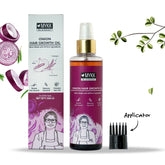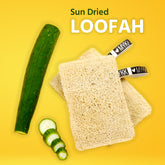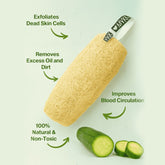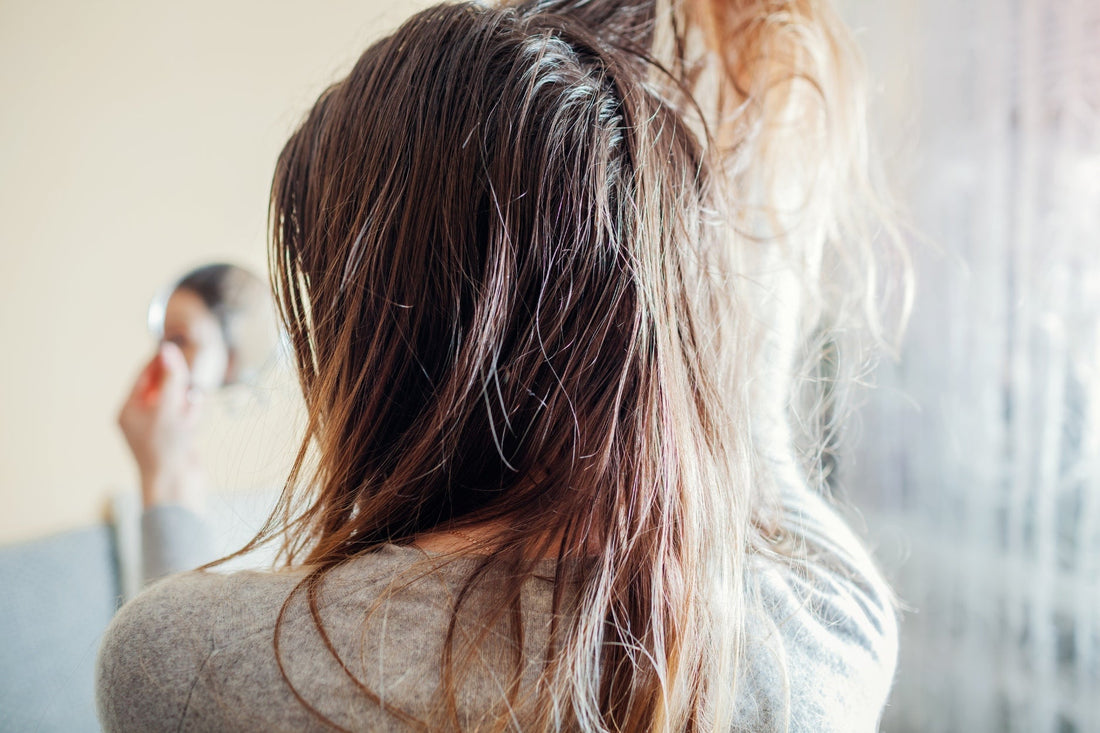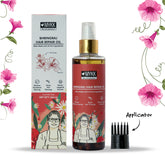Greasy or Oily Hair : Why It Happens and How to Fix It
Does your hair start looking greasy just hours after washing it? Do you feel like no matter what you do, your hair always looks flat and oily? You’re not alone! Oily hair is a common problem, but luckily, it’s also easy to manage once you understand what’s causing it. In this blog, we’ll explain why hair gets greasy, what makes it worse, and how you can fix it with simple, effective tips.
Your scalp produces a natural oil called sebum, which helps keep your hair healthy and protected. But when your scalp produces too much oil, your hair can start looking greasy and dirty—even if you just washed it! Here are some common reasons why this happens:
1.Your Scalp Produces Too Much Oil
Some people naturally have overactive oil glands, meaning their scalp produces more natural oil than necessary. This is mostly due to genetics, so if oily hair runs in your family, you might have inherited it.
2.Hormonal Changes
Hormones play a big role in oil production. Teenagers, pregnant women, or people going through menopause may notice their hair getting greasier due to hormone fluctuations. Conditions like PCOS (polycystic ovary syndrome) can also cause excessive scalp oiliness.
3.Washing Your Hair Too Often
It may seem strange, but washing your hair too often can make it oily faster! This happens because your scalp makes more oil to replace what was removed.
4.Using the Wrong Hair Products
Heavy conditioners, serums, and styling products can weigh down your hair and cause buildup, making it look even greasier. Some shampoos also contain sulfates and silicones, which can contribute to excess oil.
5.Touching Your Hair Too Much
Constantly running your hands through your hair or brushing it too often spreads oil from your scalp down the strands, making it look greasy faster.
6. Diet and Lifestyle Factors
Eating too much junk food, sugar, and unhealthy fats can increase oil production. Stress, lack of sleep, and dehydration can also affect your scalp’s oil balance.
7. Weather and Humidity
Hot, humid weather can cause your scalp to produce more oil. If you live in a warm climate, your hair might naturally get greasy faster.
How to Fix Greasy Hair
Now that you know why your hair gets oily, let’s talk about how to fix it!
1.Wash Your Hair Less Often
Instead of washing your hair every day, try washing it every 2-3 days. This gives your scalp time to balance oil production. If you feel like your hair gets too oily in between washes, try dry shampoo to absorb the grease.
2.Use the Right Shampoo

Look for a clarifying shampoo or one designed for oily hair. Good ingredients to look for include:
✅ Onion oil – fights excess oil and dandruff
✅Coconut oil –provide extra smooth and shine
✅ Bhringraj Oil – Unlocking the Secrets of Ayurveda for Strong, Luxurious Locks
✅ Amla Oil – The Time-Honored Treasure for Hair Health and Radiance Avoid shampoos with sulfates, as they can dry out the scalp and make oil production worse.
3.Apply Conditioner Only to the Ends
If you have oily hair, apply conditioner only to the mid-lengths and ends of your hair—never on your scalp! This prevents extra oil buildup at the roots.
4.Rinse with Cold Water
Hot water can stimulate your scalp to produce more oil, so try rinsing your hair with cool or lukewarm water instead.
5.Use Dry Shampoo Between Washes
Dry shampoo absorbs excess oil and gives your hair a fresh look without needing to wash it. Just spray it at the roots, let it sit for a minute, then brush it through.
6.Stop Touching Your Hair
Try to avoid running your fingers through your hair or brushing it too much, as this spreads oil and makes hair look greasy faster.
7. Improve Your Diet

A healthy diet can help regulate oil production. Eat more:
🍏 Fruits and vegetables – keep your scalp healthy
🥑 Healthy fats (avocados, nuts, olive oil) – help balance oil production
💧 Drink more water – keeps your scalp hydrated and prevents excess oil production Try to cut back on processed foods, sugar, and greasy foods, as they can make your scalp oilier.
8. Switch to a Silk Pillowcase
Cotton pillowcases absorb oil from your hair, which can make it look greasy faster. A silk or satin pillowcase is gentler on your hair and helps reduce oil buildup.
When to See a Doctor
If you’ve tried everything and your hair is still extremely oily, you might have a condition like seborrheic dermatitis, which causes excessive oil and dandruff. In this case, a dermatologist can recommend special treatments or medicated shampoos.
Final Thoughts
Greasy hair can be annoying, but it’s completely manageable! By understanding the causes of oily hair and making simple changes to your hair care routine, you can keep your scalp balanced and your hair fresh for longer. Remember: Don’t overwash, use the right products, and avoid touching your hair too much. Small changes can make a big difference!




